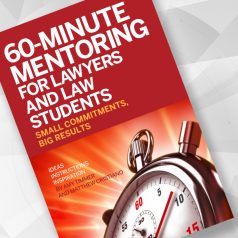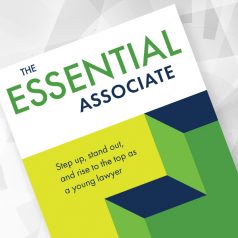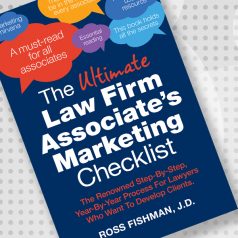Once I overcame my skepticism of professional coaching, it helped me gain clarity about what I want.
New year, new resolutions, right? In case one of your new to-dos is to explore working with a professional coach, this post is for you.
Confession: Pre-2018, I was a huge skeptic about professional coaching. So skeptical I want to put “huge” in all caps, but I really don’t want to yell at you.
My inner dialogue: Pfft. Professional coach? Like a life coach? What does that even mean? How can some stranger help me figure my life out — aren’t I in the best position to do that? Why would I pay someone to do something I can do myself? And what does it say about me that I need one?
Now, in 2021, after working with a coach for about three years?
I. Am. A. Believer.
Having a professional coach has helped me gain clarity about who I am, what I want and why. It has empowered me to seek fulfillment instead of chasing “perfection,” and has provided me with the knowledge, tools and accountability, backed by neuroscience, to get there.
Sound Too Good to Be True?
I thought so, too, until I found the right coach, approached the relationship with a specific goal in mind, and, most importantly, did the work.
But before I share my tips on how to work with a professional coach successfully, it might help to explain how I moved past my initial skepticism.
First, my initial leaning that professional coaching was mumbo-jumbo — and made up of professionals who couldn’t “hack it” in their real career turned into advice-dispensaries — was woefully misplaced. My apologies to my coach and all the coaches out there for thinking this in the first place.
Contrary to my biases, the industry is legit. I didn’t realize this as a baby lawyer, but many companies (and sometimes law firms) pay for professional or leadership coaches to develop their executive leadership. I mean, if it’s good enough for the CEO of any Fortune 500 company, who am I to think that I couldn’t benefit from a bit of help?
Second, I have had personal (physical) training a few times in my life. Looking back to when I committed to doing the work, my health (and, vainly, physical appearance) was transformed. So why was I willing to pay someone to show me how to work out when I arguably could Google, Pinterest or YouTube it myself for free? It came down to time and efficiency. Sure, I could spend a lot of time researching the latest on physical health and nutrition and develop my own plans. Or, as a busy attorney, I could pay someone to tell me what to do based on their research so that all I have to do is show up and do what I’m told. Yes, please!
It’s the same with professional coaching.
Granted, this is just my personal experience, but my coach is certified, he is constantly reading and learning and thinking about the latest research and trends in neuroscience, and I get the benefit of him personalizing a plan for little ‘ole me. I just have to show up and be ready to do the work (and compensate him, of course).
It is similar to hiring a financial planner or personal accountant. If you have time and interest and aptitude, by all means, do it all yourself. But if you’re a busy attorney with billables and the financial resources to delegate to experts, I’m personally all for that.
Tips for Working With a Professional Coach
Once you’ve decided to give coaching a try, here are a few tips on how to successfully work with a professional coach.
Know Your Why
Problem-solving 101: You have to define your problem so you can solve it. To bust another myth, having a coach is not like having a fairy godmother who will figure out your life and fix you with a wave of a magic wand. If that’s what’s being advertised to you, be a bit wary.
Rather, it’s important to have an idea of what you want to work on. Maybe it’s leadership or communication. Perhaps it’s public speaking or business development. You may have more than one thing you want to work on.
My “push” was an annual review. I received feedback that I needed to work on my gravitas — my “executive presence.” Although I was nodding profusely when I received my boss’s feedback, I actually had no idea what those words meant, much less how to “work on” them. That was the initial why that lead me to a coach. Since then, my coach and I have worked on confidence, managing conflict, overcoming my imposter syndrome, among other things.
Of course, I recognize that you may not know if you need to work on anything. While I can’t speak for all coaches, I have known many who have some kind of diagnostic exercise to help you figure it out.
Ask Questions to Find the Right Fit
As with hiring any professional, finding the right fit is important. There are niches. Once you figure out what you want to work on, ask your network for referrals, and do some old-fashioned research.
Here are some questions you may want to consider:
- How long have you been coaching?
- How would you describe your style? What do you base your coaching philosophy on?
- Do you have any certifications?
- Do you have any clients I could call as references?
- What would you describe as your niche or expertise, if you had one?
Many lawyer coaches offer a complimentary consultation to see if you are a good fit. Here is where I recommend sharing your why and asking what the professional recommends as an initial plan or program, along with the associated costs.
It may go without saying, but during this initial consult, it’s important to ask for what you want and need. For example, my current coach has a set program on his website, but I couldn’t commit to it so I asked if he had any “al a carte” options. I also told him that I’m a person who needs homework — if I didn’t have any tangible work product, I’d think I just retained him to vent.
A bit of a warning here: I personally take the view that coaching is not a replacement for therapy with a mental health professional. I was so impressed with my coach when he led with that in our first call. Then again, I did share my huge skepticism with him from the beginning.
Meaningful Change Takes Time and Commitment
OK, this may seem super obvious. Still, since lawyers tend to push their own development to the bottom of the to-do list to chase more billables or put out more client fires (real or created), this is important to note. Once you choose a coach, commit to a small chunk of time — six months to one year beyond the trial period — and try to stick to it. Success isn’t achieved in a one and done.
The first year I worked with my coach, I was clear that I could only meet quarterly because, as a new mom of two, I needed more energy to devote to keeping a newborn and a toddler alive. The second year, I met with him every other month. And this past year, we met every month.
You also have to commit to doing the work — the reflection, the exercises, the homework. Otherwise, you won’t succeed and you’ll create this self-fulfilling prophecy that exploring coaching really was a waste of your time.
Illustration ©iStockPhoto.com
More Tips for New Lawyers
“New Associates: The Power of List-Making” by Meyling Ly Ortiz
“17 Things I Wish I Knew as a New Associate” by Jay Harrington
“Survival Skill No. 1 for New Lawyers: Emotional Resilience” by Link Christin
“3 Ways for Young Associates to Get Off to a Fast Start” by Jay Harrington
“Getting Clients: For Lawyers Starting Out or Starting Over” (book) by Merrilyn Astin Tarlton
RESOURCES FOR NEW LAWYERS
The Essential Associate: Step Up, Stand Out, and Rise to the Top as a Young Lawyer. From attorney, coach and legal marketing expert Jay Harrington, “The Essential Associate” is for young lawyers who aspire to grow, succeed and advance on a partnership track at a law firm. Jay’s practical, step-by-step guide is aimed at helping new lawyers thrive in today’s competitive law firm environment. It includes insights from dozens of successful lawyers at firms across the country, general counsel at Fortune 500 companies, and top consultants to the legal industry.
The Ultimate Law Firm Associate’s Marketing Checklist by Ross Fishman has been used for more than 25 years by associates in their successful quests to become rainmakers. Want to build a personally fulfilling law practice on your own terms? Ross Fishman details the tactics to accomplish your goals. Expanded and updated to include the latest online tools, plus dozens of examples, stories, case studies and videos. It is the simplest, most-effective tool to ensure associates get on — and stay on — the right track to professional success.
Get more details and order your copy here.


























